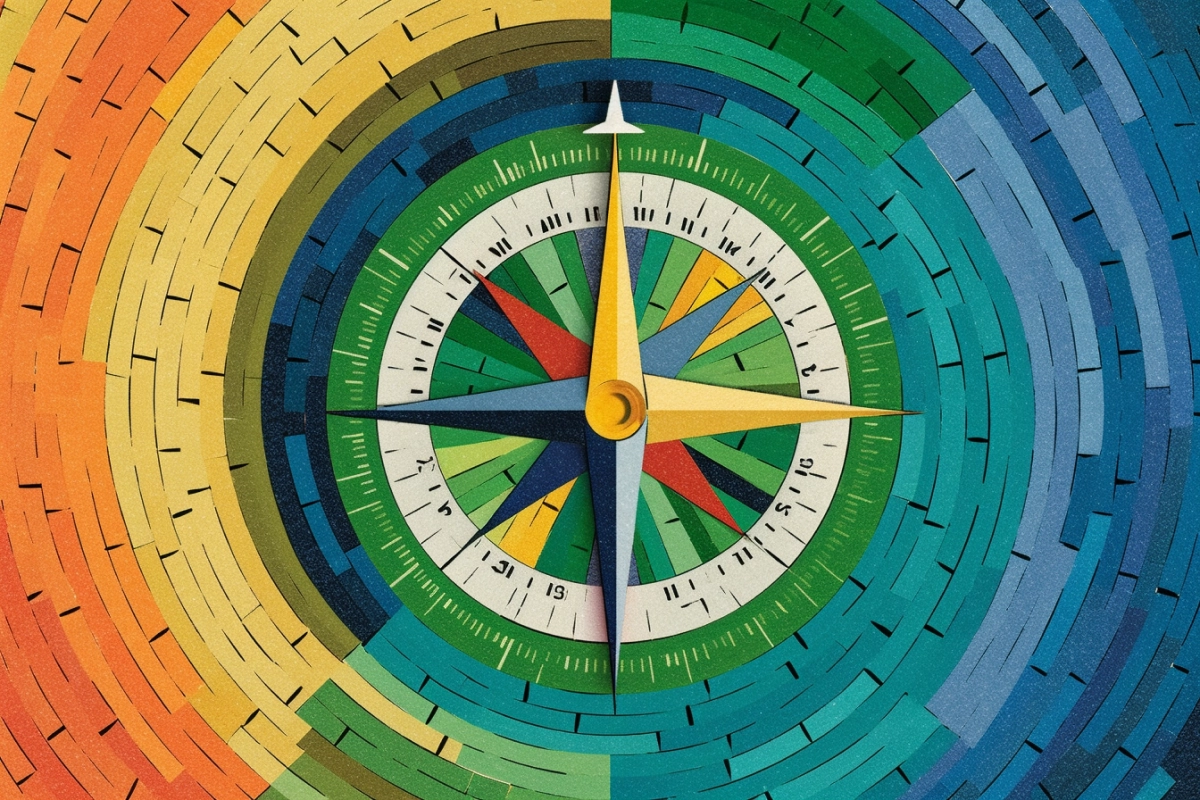In the quest for building successful teams and unlocking their true potential, organizations have discovered the power of workplace personality tests.
These transformative assessments offer a key to decoding the secrets of success by understanding the unique characteristics, communication styles, and work preferences of individuals.
By harnessing the insights provided by these tests, businesses can create harmonious and productive work environments that foster collaboration, innovation, and optimal performance. In this article, we will explore the benefits of work personality tests and guide you through the journey of utilizing them to crack the code of success within your organization.
Get ready to uncover the hidden gems that lie within your team members and propel your organization to new heights!
Start Here!
Understanding the importance of workplace personality tests
In the dynamic landscape of today's workplaces, success hinges not only on technical skills but also on the harmonious interaction and collaboration between team members. That's where workplace personality tests come into play.
These invaluable assessments go beyond surface-level observations, providing a deeper understanding of the unique traits, communication styles, and work preferences that shape individuals. By unlocking this knowledge, organizations can decode the secrets of success and build teams that thrive.
Get into the transformative power of workplace personality tests and unravel the secrets they hide to unlock your team's full potential. So grab a cup of coffee and get ready to explore the fascinating world of decoding success in your organization ☕
Why workplace personality tests matter?

Today success isn't solely determined by technical skills or job titles—it's about understanding the intricate dance of personalities within a team. Workplace personality tests have emerged as powerful tools to crack the code of success. They go beyond mere surface-level observations, diving deep into the unique traits, communication styles, and work preferences of individuals.
It is easy to imagine a team where John, the extroverted sales guru, thrives in client-facing interactions. At the same time, Sarah, the conscientious mastermind, excels at organizing and ensuring every detail is flawlessly executed. Sound familiar? By harnessing the insights from personality tests, organizations can build dream teams that bring together individuals with complementary strengths and create a harmonious work environment.
Start now
These tests are not just another HR trend—they hold immense significance in today's professional landscape. Let's say you're a project manager, and you're assembling a team to tackle a complex client project. By understanding the unique personality traits of your team members, you can strategically assign roles. You place Lisa, who scores high in openness and creativity, in charge of brainstorming innovative solutions, while David, who ranks high in conscientiousness, takes the lead in organizing and executing the project plan with meticulous attention to detail. The synergy that emerges from this thoughtful combination sets the stage for unprecedented collaboration and maximum productivity.
In today's diverse workplaces, understanding and appreciating different communication styles are vital for effective collaboration. Workplace personality tests provide valuable insights that propel teams towards success. Consider this scenario: Emma, a team member with introverted tendencies, prefers thoughtful reflection before sharing her ideas, while Mark, an extravert, thrives in fast-paced, spontaneous discussions. Armed with knowledge of their communication styles from personality tests, you can facilitate a balanced environment that encourages input from all team members. By fostering open communication, you create a space where everyone's voice is heard, harnessing the collective wisdom of the team and paving the way for innovative breakthroughs.
Workplace personality tests are the keys that unlock the potential within teams. By embracing the insights they offer, organizations can build high-performing teams that transcend individual capabilities. They create a symphony of personalities, each playing their unique role, united in a shared vision of success. So, let's crack the code together, decode the fascinating world of personalities, and unlock a new era of achievement within your organization.
Benefits of workplace personality tests

1. Power of self-awareness
Let's dive into the power of self-awareness. Imagine you're part of a project team, and through a workplace personality test, you unveil your inherent strength in strategic thinking and problem-solving. With this newfound knowledge, you seize opportunities to contribute innovative ideas and lead your team towards breakthrough solutions. By harnessing your strengths, you become a trusted advisor, guiding your colleagues through complex projects and solidifying your reputation as an invaluable asset within the organization.
Moreover, self-awareness extends beyond individual performance to foster effective communication and collaboration. Consider a scenario where a team member discovers their communication style leans towards directness and assertiveness, while another team member leans towards a more diplomatic approach. According to this understanding, they adapt their communication strategies, ensuring their messages are received and understood with clarity and empathy. This enhanced communication bridges gaps, strengthens relationships, and fosters a culture of collaboration where diverse perspectives thrive.
But self-awareness is not a destination; it's an ongoing journey of growth and development. Let's say an employee uncovers through a workplace personality test that they tend to be overly detail-oriented, sometimes leading to analysis paralysis. Armed with this insight, they actively seek opportunities to strike a balance between meticulousness and timely decision-making, ensuring their contributions are both thorough and efficient. This newfound awareness empowers them to step into new roles, take calculated risks, and embrace change with adaptability and resilience.
Embracing self-awareness and utilizing the insights derived from workplace personality tests is the secret sauce for personal and professional success. By understanding their own unique traits, individuals can leverage their strengths to achieve remarkable outcomes, while proactively addressing their weaknesses to foster continuous growth. It's like unlocking a hidden superpower, enabling individuals to navigate the ever-evolving landscape of the workplace with unwavering confidence and purpose.
2. Key to building high-performing teams
Workplace personality tests are not merely a box to check off on an HR checklist—they are the compass that guides organizations toward creating well-rounded teams capable of excelling both individually and collectively. By strategically assembling individuals with diverse personalities, organizations unlock the power of synergy. Let's take the example of a marketing agency. Emma, the empathetic and agreeable account manager, thrives in building strong client relationships, while Mark, the extraverted and charismatic copywriter, excels at captivating audiences with his words. When their talents merge, their collaboration becomes a force to be reckoned with, driving exceptional results and propelling the agency to new heights.
In the quest for innovation and success, workplace personality tests are the secret weapon that propels organizations forward. Imagine you're part of a research and development team. Through personality assessments, you identify Lisa, the imaginative and open-minded researcher, and David, the conscientious and detail-oriented analyst. By recognizing their unique strengths, you empower Lisa to generate cutting-edge ideas and encourage David to provide meticulous analysis. Their dynamic partnership fuels creativity, accuracy, and ultimately leads to groundbreaking discoveries that revolutionize your industry.
When teams are strategically composed, combining individuals whose personalities complement one another, the possibilities for success are endless. By leveraging the insights gleaned from workplace personality tests, organizations create a vibrant ecosystem where diverse talents thrive and innovation flourishes. The power of collaboration ignites, with team members understanding and appreciating the unique value each brings to the table. This fosters an environment of trust, respect, and mutual support, enabling teams to navigate challenges, adapt to change, and achieve remarkable results.
3. Enhancing to conflict resolution and team dynamics
Workplace personality tests also play a crucial role in improving conflict resolution and fostering healthier team dynamics. When team members have a deeper understanding of their own and others' personality traits, they can navigate conflicts with empathy, respect, and effective communication.
For instance, let's say there's a disagreement between two team members, Sarah and John, regarding the direction of a project. Sarah, with her high conscientiousness, prefers a meticulous approach, while John, with his extraversion, leans towards a more flexible and spontaneous approach. By recognizing and appreciating their differences, they can engage in open dialogue, combining Sarah's attention to detail with John's creative thinking to find a balanced solution that satisfies both parties.
Workplace personality tests bring awareness to potential sources of conflict and equip team members with the tools to navigate them successfully. Consider a team where Emma, an assertive and direct communicator, clashes with Mark, who is more reserved and avoids confrontation. Through personality assessments, both individuals gain insights into their communication styles and learn strategies to bridge the gap. Emma learns to adapt her approach to be more diplomatic, while Mark learns to express his thoughts assertively. This newfound understanding fosters a healthier work environment where conflicts are addressed constructively, leading to improved teamwork and productivity.
By leveraging the knowledge gained from workplace personality tests, teams can optimize their dynamics, capitalize on each member's strengths, and minimize potential conflicts. It empowers individuals to embrace diversity, appreciate different perspectives, and cultivate a culture of collaboration and mutual respect. When conflicts arise, team members can navigate them with a greater sense of understanding, empathy, and problem-solving skills, resulting in more harmonious and productive working relationships.
Start now
4. Fostering innovation and creativity
Workplace personality tests are powerful tools for fostering innovation and creativity within teams. By understanding the unique strengths and preferences of team members, leaders can create an environment that encourages new ideas, out-of-the-box thinking, and breakthrough solutions.
Imagine a team where individuals have taken a workplace personality test and discovered their creative strengths. One team member, Sarah, uncovers her innate ability to think outside the box and generate innovative concepts. Another team member, David, discovers his talent for connecting ideas and seeing the bigger picture. By leveraging this knowledge, the team leader can assign Sarah to brainstorming sessions and David to strategic planning, maximizing their creative potential and fueling the team's innovation engine.
Moreover, workplace personality tests reveal how individuals approach problem-solving and decision-making. For instance, a team member with a preference for analytical thinking may excel in analyzing data and finding logical solutions, while someone with a preference for intuitive thinking may bring fresh perspectives and unconventional ideas to the table. By combining these different thinking styles, teams can tackle complex challenges from multiple angles, leading to more robust and innovative solutions.
Workplace personality tests also shed light on individuals' risk-taking tendencies. Some team members may naturally lean towards taking calculated risks and embracing change, while others may prefer a more cautious approach. By understanding these preferences, leaders can create a balanced mix of risk-takers and risk-mitigators within the team, striking the right balance between innovation and stability.
Embrace the power of workplace personality tests to unlock the creative potential within your team. Leverage the insights gained from these tests to assign individuals to roles that capitalize on their strengths and thinking styles. By fostering a culture that embraces diverse ideas and encourages risk-taking, you can create a dynamic and innovative team that pushes boundaries and achieves extraordinary results.
Discover types of work personality tests & make your choice!
In the vast landscape of work personality tests, choosing the right one for your organization is like finding the perfect tool for a masterpiece. With options ranging from the popular Myers-Briggs Type Indicator (MBTI) to the insightful DISC assessment and the illuminating Enneagram and guiding light The Big Five, each test offers a unique lens through which to understand the intricacies of personalities in the workplace. Let’s check which is the best for your needs!
1. MBTI
The MBTI test is like a GPS for your personality. It helps you understand if you're more of a bustling city (extraversion) or a quiet countryside (introversion), if you navigate by road signs and landmarks (sensing) or intuition and gut feelings (intuition), if you make decisions based on facts and logic (thinking) or values and emotions (feeling), and whether you prefer to follow a strict itinerary (judging) or explore spontaneously (perceiving).
Based on results from a questionnaire or survey, where individuals respond to a series of statements and indicate their preferences, they are later assigned a four-letter type that represents their unique personality profile.
The MBTI test helps individuals understand their preferred ways of perceiving and interacting with the world, their decision-making processes, and their communication styles. This knowledge can be valuable in various aspects of life, including personal growth, career planning, team dynamics, and building effective relationships.
What you will learn from the MBTI test?
The MBTI (Myers-Briggs Type Indicator) test offers insights into your personality preferences, helping you understand your unique strengths, communication styles, and decision-making approaches. It reveals valuable information about how you perceive the world, make decisions, and interact with others, empowering personal growth and fostering better relationships.
When to choose the MBTI test?
Choosing an MBTI test can be beneficial when you want to gain self-awareness, explore career paths that align with your personality type, improve communication and collaboration within teams, understand your learning style, or enhance your overall personal and professional development. It's a valuable tool for anyone seeking a deeper understanding of themselves and those around them, providing a foundation for growth and success.
2. DISC
The DISC test is like a personal compass, guiding you through the complex landscape of human behavior. The compass has four cardinal points, each representing a key aspect of your behavioral style: dominance, influence, steadiness, and conscientiousness.
The test is typically conducted through a questionnaire or survey, where individuals respond to statements and indicate their level of agreement. Based on their responses, they are assigned a combination of these four dimensions, representing their unique behavioral profile.
The DISC test helps people understand how they approach tasks, interact with others, make decisions, and handle challenges. This knowledge can be applied to enhance communication, teamwork, leadership, and personal development in the workplace.
By understanding their behavioral tendencies, individuals can tailor their communication styles like changing sails to suit the wind, harness their strengths like a captain navigating through the storm, and collaborate with crew more effectively.
What you will learn from the DISC test?
The DISC test offers valuable insights into an individual's behavioral style, providing a deeper understanding of their dominance, influence, steadiness, and conscientiousness. It uncovers how individuals interact with others, approach tasks, and respond to challenges, allowing for improved communication, teamwork, and personal growth.
When to choose the DISC test?
The DISC test is a powerful tool in various contexts, including team dynamics, leadership development, conflict resolution, and sales training. It is chosen when individuals or organizations seek to enhance self-awareness, strengthen interpersonal relationships, optimize team performance, and tailor communication strategies for maximum effectiveness. Whether embarking on a new project or seeking personal growth, the DISC test helps unlock the secrets to effective collaboration and success.
3. Ennegram
The Enneagram test, like a lighthouse keeper, gives the means to navigate people inner seas with clarity. It helps unearth buried treasures of self-awareness and map out the geography of personality types, each characterized by specific patterns of thinking, feeling, and behaving. Understanding how these elements shape behavior is like understanding the currents that steer ship, affecting relationships and interactions.
The Enneagram test is a powerful tool for understanding personality and motivations. It identifies nine distinct personality types, each characterized by specific patterns of thinking, feeling, and behaving. The test is typically performed through a questionnaire or assessment, where individuals respond to statements and indicate their agreement or disagreement. Based on their responses, they are assigned a primary type that represents their dominant traits and motivations.
Understanding Enneagram type is like having a compass that points you towards your true north, enabling you to harness your strengths and sail towards the horizon of your full potential. This knowledge can be utilized to foster personal growth, improve communication, and develop strategies for overcoming challenges in the workplace.
What will you learn from the Enneagram test?
The Enneagram test offers profound insights into your core motivations, fears, and desires, helping you understand the driving forces behind your thoughts, emotions, and behaviors. It uncovers nine distinct personality types, providing a roadmap for self-discovery, personal growth, and building more fulfilling relationships.
When to choose an Enneagram test?
Choosing an Enneagram test can be invaluable when you want to delve deep into your inner workings, uncover unconscious patterns, explore personal development, improve self-awareness, enhance relationships, and gain a greater understanding of your strengths and areas for growth. Whether you're embarking on a journey of self-discovery or seeking to foster more meaningful connections with others, the Enneagram test can be a transformative tool on your path to self-improvement and self-acceptance.
4. Big Five
The Big Five test, also known as the Five-Factor Model, is like an artist's palette, offering a spectrum of colors that represent the myriad shades of human personality. Each color symbolizes one of the fundamental traits: openness, conscientiousness, extraversion, agreeableness, and neuroticism.
The test is typically conducted through a questionnaire or survey, where individuals respond to statements and rate their level of agreement. Based on their responses, their personality traits are assessed and scored on a continuum for each dimension.
The Big Five test provides insights into an individual's personality characteristics, including their openness to new experiences, level of organization and responsibility, sociability, cooperativeness, and emotional stability. This knowledge can be applied in the workplace to better understand oneself and others, enhance communication, optimize team dynamics, and foster personal and professional growth. By leveraging the insights gained from the Big Five test, individuals can navigate the gallery of their career more effectively, adapt to the changing light of different environments, and build a portfolio of successful relationships within their professional landscape.
What will you learn from the Big Five test?
The Big Five test provides insights into five fundamental dimensions of personality: openness, conscientiousness, extraversion, agreeableness, and neuroticism. By taking this test, you will gain a comprehensive understanding of your personality traits, communication styles, and emotional tendencies, enabling you to make informed decisions about personal growth, career choices, and building more effective relationships.
When to choose a Big Five test?
Choosing a Big Five test can be beneficial when you want to gain a deeper understanding of your personality, uncover your strengths and areas for improvement, enhance self-awareness, and explore how your traits impact different areas of your life. Whether you're embarking on a new career path, seeking personal growth, or aiming to enhance your interpersonal skills, the Big Five test provides a valuable tool to guide your journey of self-discovery and personal development.
Cracking the code to success with workplace personality tests
The transformative potential of workplace personality tests is undeniable.By delving into the depths of individual personalities, understanding unique traits, and harnessing the power of effective team composition, organizations can unlock a new era of success.
Embrace the wisdom offered by these tests, navigate the labyrinth of personalities, and witness the remarkable impact on collaboration, productivity, and overall achievement.
As you embark on this journey of decoding success, remember that the key lies in embracing diversity, fostering open communication, and empowering individuals to reach their full potential!
Start Here!
Workplace personality tests - FAQ
What is the best personality test for work?
Choosing the best personality test for work depends on your specific organizational needs and goals. Popular options include the Myers-Briggs Type Indicator (MBTI), DISC assessment, and Enneagram. Each test offers unique insights into personality preferences, communication styles, and motivations. Consider your organization's context and objectives to select the test that aligns best with your requirements.
What is the personality test for employees?
A personality test for employees is a tool used to assess and understand individual characteristics, traits, and behaviors within the workplace. These tests provide valuable insights into employees' strengths, weaknesses, communication styles, and work preferences. By administering such tests, organizations gain a deeper understanding of their workforce and can make informed decisions about team composition, professional development, and maximizing individual and collective performance.
How do you measure personality in the workplace?
Measuring personality in the workplace is achieved through the administration of validated personality assessments or tests. These assessments typically involve a series of questions or scenarios that individuals respond to, and their responses are then analyzed to generate insights into their personality traits and characteristics. The results provide a basis for understanding an individual's strengths, weaknesses, communication style, and other relevant aspects that contribute to their overall work performance and collaboration within a team.
What are the main benefits of using workplace personality tests?
Workplace personality tests offer several key benefits. Firstly, they provide valuable insights into individual traits, strengths, and weaknesses, enabling organizations to make informed decisions regarding team composition, role assignments, and professional development. Secondly, these tests enhance self-awareness among employees, empowering them to leverage their strengths, address areas for improvement, and enhance their overall performance. Additionally, workplace personality tests foster effective communication and collaboration by promoting understanding and appreciation of diverse communication styles within teams.
How do work personality tests contribute to team performance?
Work personality tests play a crucial role in optimizing team performance. By identifying individual strengths and preferences, these tests enable organizations to strategically compose teams that capitalize on complementary skills and temperaments. When team members align their communication styles, understand each other's strengths, and appreciate diverse perspectives, it creates an environment of collaboration and synergy. This, in turn, leads to improved teamwork, streamlined processes, and higher levels of productivity and innovation within the team.
Are there any limitations or criticisms of work personality tests?
While work personality tests offer valuable insights, it's important to recognize their limitations. One limitation is that these tests provide a snapshot of an individual's traits and preferences at a particular moment, which may not capture the full complexity of their personality. Moreover, work personality tests should be used as a tool for understanding, rather than as the sole determinant of an individual's capabilities or suitability for a role. Additionally, some critics argue that work personality tests may oversimplify the complexities of human behavior and overlook other important factors that contribute to job performance, such as skills, experience, and motivation.
Can work personality tests be used for hiring and recruitment purposes?
Yes, work personality tests can be utilized in the hiring and recruitment process. These tests can provide valuable insights into a candidate's behavioral tendencies, work preferences, and compatibility with the organizational culture. However, it's important to ensure that the tests used are valid, reliable, and specifically designed for hiring purposes. Additionally, it is essential to comply with legal and ethical guidelines to ensure fairness and avoid any discriminatory practices during the recruitment process.
How often should organizations conduct work personality tests for their employees?
The frequency of conducting work personality tests can vary depending on organizational needs and resources. Some organizations may choose to administer these tests during the recruitment process to assess candidates' suitability for specific roles. Others may conduct periodic assessments for existing employees to support their professional development and identify opportunities for growth. Ultimately, the timing and frequency should be determined based on the organization's goals, the nature of the work, and the desired outcomes of the assessments.
Are there any legal considerations or ethical guidelines when using work personality tests in the workplace?
Yes, there are legal and ethical considerations when using work personality tests in the workplace. Organizations should ensure compliance with applicable laws and regulations related to employment practices and anti-discrimination measures. It is crucial to use validated and reliable tests that are not biased against any protected groups. Additionally, transparency and clear communication about the purpose and implications of the tests should be maintained. Respecting individual privacy, obtaining informed consent, and protecting the confidentiality of the assessment results are also important ethical considerations when using work personality tests in the workplace.

Karol is a serial entrepreneur, e-commerce speaker m.in for the World Bank, and founder of 3 startups, as part of which he has advised several hundred companies. He was also responsible for projects of the largest financial institutions in Europe, with the smallest project being worth over €50 million.
He has two master's degrees, one in Computer Science and the other in Marketing Management, obtained during his studies in Poland and Portugal. He gained experience in Silicon Valley and while running companies in many countries, including Poland, Portugal, the United States, and Great Britain. For over ten years, he has been helping startups, financial institutions, small and medium-sized enterprises to improve their functioning through digitization.







